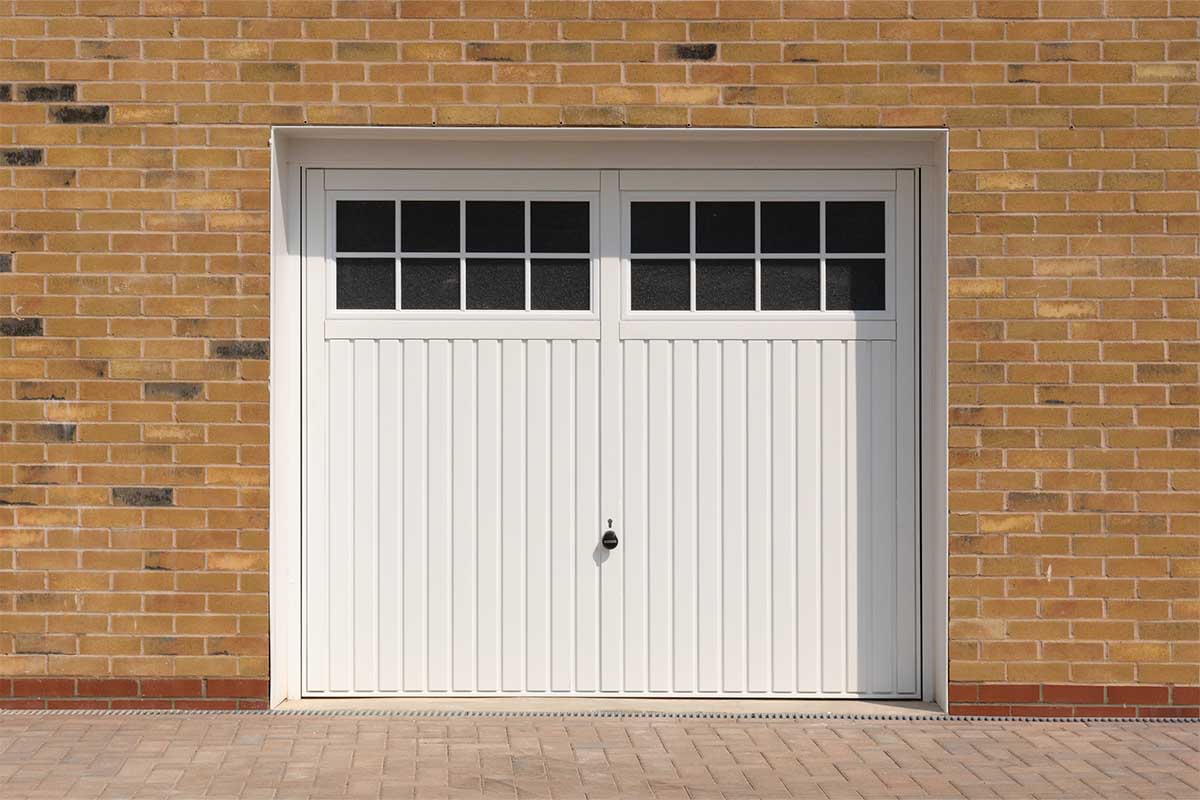Choosing the right builder can make or break your renovation. Whether you are upgrading your kitchen, extending your house, or exploring home improvement and conversion projects such as garage conversions or even a barn...
A garage conversion or extension is a transformative home improvement project that turns an under-utilised area into additional living space, such as a home office, home gym, extra bedroom, or utility room. By leveraging permitted development rights, homeowners can extend a single garage, a double garage, or a detached garage without requiring planning permission, making it a cost-effective way to add space and enhance property value.
This article explores how to achieve a successful garage conversion or extension within permitted development, detailing garage conversion costs, building regulations, garage conversion ideas, and the advantages that make the conversion project worthwhile for many families. We assess whether the financial and practical benefits of extending the garage space outweigh the costs, ensuring a converted garage enhances the main house.

Exploring Garage Extensions
What Does a Garage Extension Entail?
A garage conversion or extension expands the existing structure of a single garage, double garage, or detached garage to create additional living space or storage space. Unlike a full garage conversion that replaces the garage door to form a habitable room, an extension adds new space by extending the garage walls, roof, or floors, often retaining the parking space. This home improvement can deliver a new room, such as a home cinema or an extra room, within permitted development rights, thereby avoiding the need for planning permission from the local planning authority. The converted garage integrates with the main house, significantly increasing property value and functionality.
Versatile Uses for Extended Garages
Garage conversion ideas inspire a range of extension possibilities, each adding value:
-
Home Office: Extend a single garage for a workspace with new windows for natural light and sound insulation.
-
Home Gym: Expand a double garage for fitness equipment on a structurally sound concrete slab.
-
Extra Bedroom: Create an ensuite bedroom or extra room with underfloor heating for guests.
-
Utility Room: Add storage space for laundry or tools, with an access point to the main house.
-
Home Cinema: Build a cosy entertainment area with adequate ventilation and new flooring.
These uses transform wasted space into liveable space, making the garage conversion project a valuable investment.
Regulatory Framework for Garage Extensions
Leveraging Permitted Development Rights
Permitted development rights allow many garage conversions and extensions without planning permission, provided they meet specific criteria:
-
The extension covers less than 50% of the garden area (excluding the existing house) and stays within 4 meters in height for a pitched garage roof or 3 meters for a flat roof.
-
The new space matches the main house’s materials and aligns with the external ground level.
-
The garage is not in a conservation area or listed building, where listed building consent is needed.
This framework enables a successful garage conversion without local council approval, saving time and costs.
When Planning Permission Is Necessary
Planning permission is required if the garage conversion exceeds permitted development rights, such as extending beyond the existing structure’s footprint or raising the floor level. Garage conversions require approval for detached garages in conservation areas or listed buildings. Consulting the local authority ensures compliance, preventing delays and maximising the converted garage’s value.
Adhering to Building Regulations
Building regulations are mandatory for habitable space, ensuring safety and energy efficiency. Key requirements include:
-
Fire Safety: Install a direct protected route with escape routes, fire-resistant external doors, and smoke alarms.
-
Insulation: Use insulated plasterboard and external insulation to keep the room warm.
-
Ventilation: Ensure adequate ventilation with new windows.
-
Structural Integrity: Confirm garage floors and garage ceiling are structurally sound, with structural engineer input.
A building notice or full plans submission secures building regulations approval, with building control inspections ensuring the newly converted space adds value safely.
Practical Steps for a Garage Extension
Assessing Garage Feasibility
Determine if your garage is suitable for extension. Most garages have a structurally sound concrete slab, but inspect the garage floors, the garage ceiling, and the garage roof for stability. A double garage supports an extra bedroom or home cinema, while a single garage suits storage space or a home office. A structural engineer can assess garage walls or floor level, ensuring the garage space supports habitable room requirements within permitted development.
Planning the Extension Layout
Careful planning is key to a successful garage conversion. Design the new room with new windows for natural light and an external door as an access point to the main house. For a DIY garage conversion, consider using design software that requires DIY skills, or hire a garage conversion company for project management. Incorporate garage conversion ideas like sound insulation for a home office, ensuring compliance with building regulations.
Implementing Structural Modifications
Begin building work by extending the garage walls or roof, staying within permitted development rights. Retain the parking space or add internal walls for habitable space. Apply a damp proof course and damp proof membrane to garage floors to prevent moisture, considering the external ground level. A structural engineer verifies existing ceiling joists or garage walls, ensuring stability for a detached garage.
Insulating the Extension
Insulate garage walls, garage ceiling, and garage floors with insulated plasterboard and external insulation to create a liveable space. A damp-proof course protects the newly converted space from moisture. Use the warm roof method over a flat roof for energy efficiency, ensuring the room is warm, enhancing comfort and property value.
Adding Electrical and Plumbing Systems
Install electrical wiring for lighting, sockets, a consumer unit, and underfloor heating, ensuring compliance with building regulations. For an en-suite bedroom, add plumbing, which increases garage conversion costs but boosts value. Professionals should handle electrical wiring in a DIY garage conversion project to ensure compliance with fire safety standards, with new windows providing adequate ventilation.
Completing the Extension
Finalise the conversion project with floor covering, painting, and fixtures. Install external doors and new windows for natural light. Add storage space for a utility room or home office to maximise space. Ensure the converted garage integrates with the main house, enhancing property value through cohesive design.

Cost Breakdown for Garage Extensions
Typical Extension Costs
Garage conversion costs for extensions vary:
-
Single Garage: £12,000–£25,000 for storage space or a home office.
-
Double Garage: £25,000–£50,000 for an extra bedroom or home cinema.
-
Detached Garage: £20,000–£40,000, depending on main house access.
Costs include insulation materials, new windows, a damp-proof course, and labour. A DIY garage conversion project reduces costs but requires DIY skills.
Additional Costs
-
Structural Engineer: £500–£2,000 for assessing the garage roof or the existing structure.
-
Building Regulations Approval: £500–£1,500 for building control inspections.
-
Party Wall Agreement: £700–£2,000 for internal walls separating neighbors.
A contingency budget of 5–10% (£1,000–£5,000) covers weak garage floors or damp-proofing needs.
DIY vs. Professional Execution
DIY Garage Extension
A DIY garage conversion project saves labour costs but requires DIY skills in building work, electrical wiring, and damp proofing. Tools are needed for internal walls, insulated plasterboard, and external doors. Errors in fire safety or external insulation can reduce value. It suits simple projects like a storage space if the garage is suitable.
Professional Garage Extension
A garage conversion company ensures a successful garage conversion, managing project management, building regulations approval, and party wall agreements. A structural engineer assesses the garage roof and existing structure, while contractors handle electrical wiring and underfloor heating. This is ideal for listed buildings or conservation areas, ensuring completed projects maximise property value.
Benefits vs. Challenges
Benefits of Extending Without Planning Permission
A garage conversion or extension within permitted development rights offers compelling advantages:
-
Property Value Increase: A garage conversion increases value by 5–15%, adding £30,000–£100,000, often exceeding garage conversion costs.
-
Additional Living Space: Transforms wasted space into an extra bedroom, home office, or home gym, meeting family needs.
-
Cost Efficiency: Avoids planning permission fees, with completed projects in 4–8 weeks, cheaper than loft extensions (£50,000+).
-
Enhanced Functionality: Liveable space with sound insulation, natural light, and underfloor heating improves daily life.
-
Energy Savings: Insulated plasterboard, external insulation, and damp-proof course reduce costs, making the room warm.
-
Market Appeal: Buyers value habitable rooms, boosting resale potential.
These benefits add significant value to the garage conversion.
Challenges to Address
-
Permitted Development Limits: Exceeding limits requires planning permission, increasing costs.
-
Structural Issues: Weak garage floors or garage roofs need reinforcement, raising garage conversion costs.
-
Storage Trade-Off: Extending for habitable space may reduce parking space, though storage space can be added.
-
Building Regulations: Compliance with fire safety and building control is mandatory.
Careful planning ensures benefits outweigh challenges.
Is the Extension Worth the Cost?
Financial Gains
A garage conversion increases property value significantly:
-
High-Demand Areas: 10–15% increase, adding £30,000–£100,000 for a double garage.
-
South East: 8–12% uplift, or £20,000–£60,000 for a single garage.
-
Other Regions: 5–10% increase, equating to £10,000–£30,000.
ROI calculation:
ROI (%) = [(Value Added – Cost of Extension) / Cost of Extension] × 100
Example: A £25,000 extension adding £50,000 yields a 100% ROI, justifying much does a garage extension cost.
Practical Advantages
Practical benefits enhance livability:
-
Versatile Space: An extra bedroom or home office meets modern demands, avoiding relocation.
-
Seamless Integration: Natural light, sound insulation, and underfloor heating create a habitable room.
-
Cost Avoidance: Add space without moving, saving on estate fees.
-
Quick Completion: Permitted development speeds up completed projects.
Cost-Benefit Analysis
The benefits outweigh garage conversion costs:
-
High ROI: Value added often doubles the cost, offering strong returns.
-
No Planning Delays: Permitted development rights save time and fees.
-
Enhanced Livability: Additional living space improves quality of life, avoiding larger existing house purchases.
-
Buyer Appeal: Habitable rooms attract buyers, increasing resale value.
Compliance with building regulations and permitted development maximises value.

Conclusion
Extending a garage without planning permission is a rewarding home improvement that delivers additional living space and boosts property value through permitted development rights. By transforming wasted space into a new room, such as a home office, extra bedroom, or home gym, a successful garage conversion offers significant financial and practical benefits.
The advantages—high ROI, cost efficiency, and enhanced functionality—outweigh garage conversion costs, especially when careful planning, building regulations approval, and building control are considered. Whether through a DIY garage conversion project or hiring a garage conversion company, the converted garage enhances your main house, making it a worthwhile investment for many families.

The Conversion Guy - A Trusted Garage Conversion Specialist in Derbyshire & Staffordshire
Are you ready to take the plunge and transform your garage into a warm, welcoming living space? Well, look no further! The Conversion Guy is committed to providing you with a garage conversion experience that is unparalleled.
With over 40 years of experience in garage conversions, we are looking forward to helping you turn your garage into a functional and beautiful space! We love talking conversions, so be sure to get in touch today or book a free consultation and start your journey towards a more spacious, versatile home.
From the Learning Centre
Explore our resources and learn about pricing, bathroom refits, kitchen kitchen renovations, loft conversions and many other home improvements in our Learning Centre







